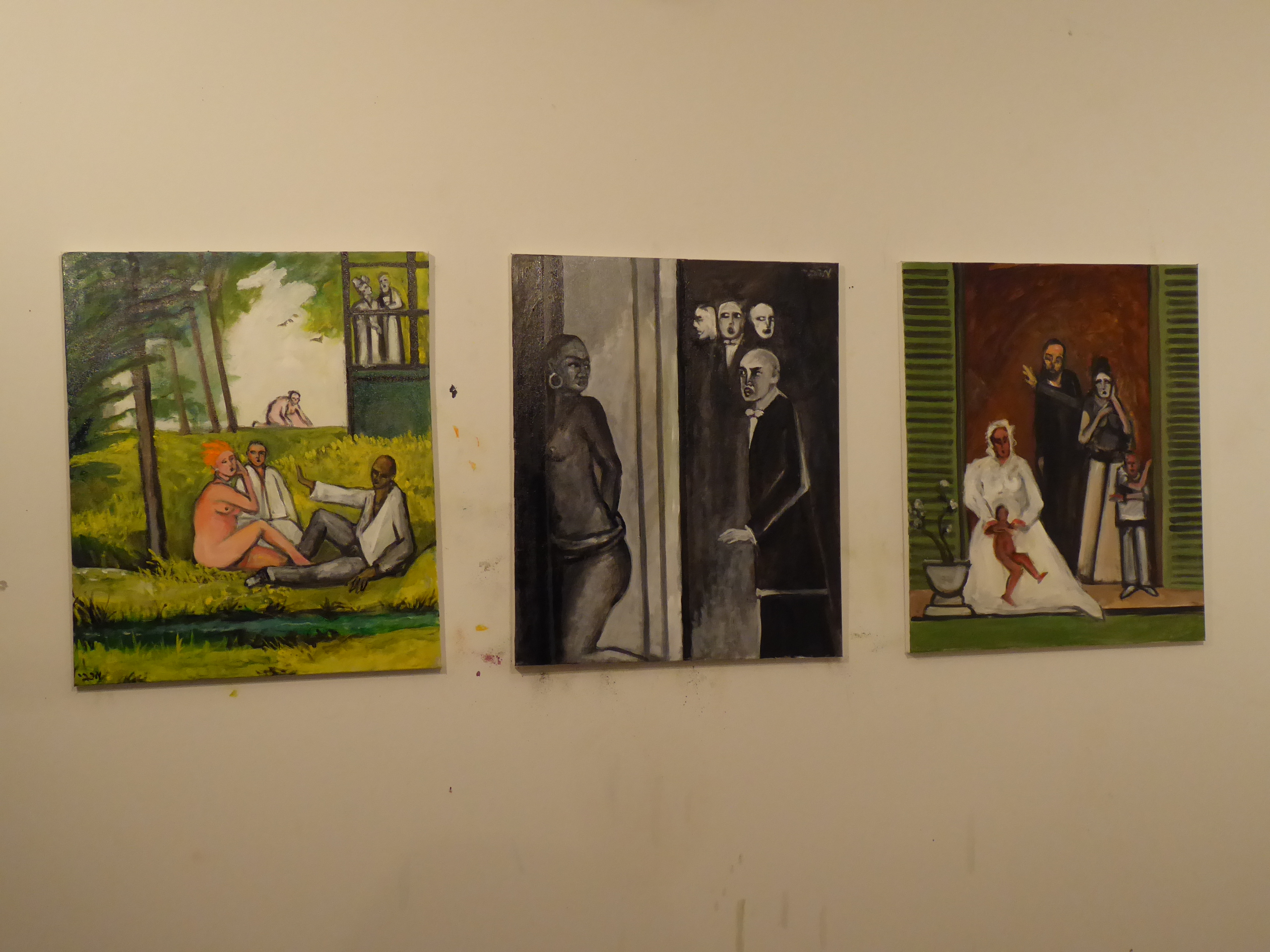

1. The Unloved Wife
2020 20" x 18"
Deuteronomy 21:15-17. “If a man has two wives–one beloved and the other despised–and they bear him sons, the beloved one and the despised one, and the firstborn son is from the despised one…” By allowing multiple wives the Torah effectively sets up the potential for deeply destructive and painful rivalries. Manet’s 1868 <em>The Balcony</em> provides the tension-filled armature of poisoned familial interactions.
2. The Beautiful Captive
2020 20" x 18"
Deuteronomy 21:11-14. “When you go out to war... and see a beautiful captive woman… you may take her…” The Torah’s acceptance of the attendant cruelty of sexually enslaving the conquered women presumes the power to act upon the male gaze. The sequence of “Maria’s Dance” In Fritz Lang’s 1927 <em>Metropolis</em> presented an unparalleled example of the male gaze utilized here. Needless to say, the racial tension sharpens the exploitative element.
3. The Rebellious Son
2020 20" x 18"
Deuteronomy 21:18-21. "This son of ours is wayward and rebellious; he does not obey us; [he is] a glutton and a guzzler… And all the men of his city shall pelt him to death with stones, and he shall die. So shall you clear out the evil from among you, and all Israel will listen and fear.” Here the rebellious daughter, hair dyed orange, flaunts her freedom with her parents looking on, relaxing with two male friends in an echo of Manet’s scandalous 1863 <em>Luncheon on the Grass</em>.